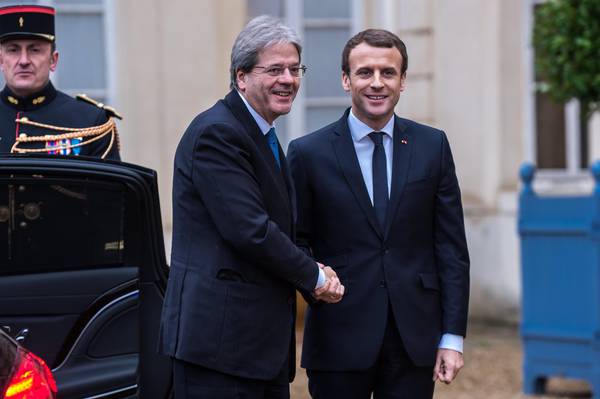Southern Europe summit in Rome on migrants and EU future
Ahead of Brussels summit. Macron to meet with Gentiloni Thursday
10 January, 11:11The countries participating in the summit - Italy, France, Spain, Portugal, Greece, Malta, and Cyprus - represent one-fourth of EU member states and contribute to 41% of the EU's budget.
The countries also share common emergencies such as that of migration, and at the summit are aiming to consolidate their forces ahead of the EU summit in Brussels in March. The leaders of the southern European countries - Italian Premier Paolo Gentiloni, French President Emmanuel Macron, Greek Prime Minister Alexis Tsipras, Spanish Prime Minister Mariano Rajoy, Maltese Prime Minister Joseph Muscat and Cypriot President Nikos Anastasiadis - are meeting in Rome following the previous three southern European summits, which took place in Athens, Lisbon and Madrid.
This will be Macron's first meeting of the seven leaders, and he will meet on Thursday with Gentiloni at Palazzo Chigi.
Following the meeting, Gentiloni and Italian Cultural Minister Dario Franceschini will accompany Macron on a visit to the Domus Aurea archaeological site.
Palazzo Chigi sources said the summit will be very concrete, focusing on the upcoming "crucial" deadlines for the European Union: reform of the Dublin Regulation by June 2018, Great Britain's exit from the European Union with the subsequent reorganisation of the European Parliament without British representation, and the reform of the Economic and Monetary Union.
The migration emergency will certainly be the main topic for the seven countries, all of whom are affected by it, although to differing degrees.
All of the countries agree that the migration problem must be tackled on a European level, including through the reform of the right to asylum.
Consolidating their common stance on this topic will definitely help the group to face the eastern European countries, in particular the Visegrad Group (Poland, Hungary, the Czech Republic and Slovakia), which opposes migrant quotas and a solidarity-based system.
A united southern European bloc could help generate consensus in a moment in which Germany, despite the fact that it supports the need to reform the Dublin Regulation, is heavily weakened, as it is still embrolied in consultations on the formation of the government. (ANSA).














